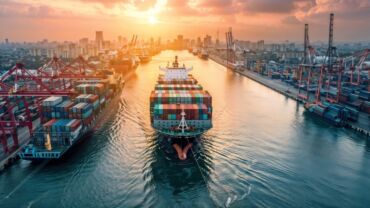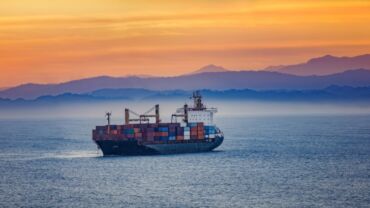Global trade professionals are navigating an increasingly complex environment, requiring expertise across multiple areas such as logistics, finance, and technology — which raises the question: Are trade professionals’ current skills and training sufficient to evolving demands?
Today, global trade professionals are facing an increasingly complex environment, in which working in the field requires expertise in everything from logistics, finance, and taxes to regulatory, legal, technology, and more. “It’s like playing 3D or even 4D chess in order to balance and manage the multiple factors, issues and scenarios that are involved every day,” says Marianne Rowden, CEO of E-Merchants Trade Council.
However, as global trade continues to grow — both in volume and complexity — there are growing concerns whether existing skills and training are keeping pace with today’s needed requirements of the profession.
The double-edged sword of technology
Technology is helping organizations deal with the growing complexity — automating numerous tasks that are otherwise laborious and time-consuming, and handling everything from the voluminous paperwork involved in shipping, logistics, and customs to drafting contracts and translating documents. And this has enabled businesses and organizations to greatly improve their efficiency, even as global trade complexity increases.
However, Rowden says she is worried that the growing use of technology could be eroding some core skills needed by global trade professionals. Many senior trade professionals gained their experience over recent decades during which global trade grew tremendously, providing them with critical grounding and foundational knowledge of how the current trade systems and policies evolved into their current state.
Citing customs as one example, Rowden explains that while specific details and policies may differ between countries, the primary building blocks are generally similar. This is largely because many of the key attributes — such as place of origin, classification, valuation, bills of lading, intellectual property ownership, etc. — have been defined, measured, and tracked literally since the dawn of cross-border trade centuries ago by caravan and sea. While processes have grown more sophisticated over time, the fundamental concepts remain largely the same.

“It’s like playing 3D or even 4D chess in order to balance and manage the multiple factors, issues and scenarios that are involved every day.”
There have been significant shifts in recent decades in how global trade professionals are trained, however, Rowden says. One catalyst was the aftermath of the events of the 9/11 terrorist attacks, which prompted a renewed emphasis on security. “While both understandable and necessary, given the circumstances, the increased orientation around security oftentimes came at the expense of core training on many of the basics,” she adds.
Another growing trend has been the emergence into the profession of digital natives — people born after the birth of Internet — a transition that is still taking place. Rowden says she is concerned that the new generation of global trade professionals may be overly reliant on technology and are not as accustom as previous generations to thoroughly validating everything from record-keeping to decision-making. She says she believes it’s critical for today’s trading professionals to understand and question the underlying data, calculations, assumptions, and scenarios rather than simply relying on the outputs contained in a spreadsheet or other application.
“Trade is a highly data-intensive field,” explains Rowden. “I teach global trade as an adjunct professor, and I’ve increasingly noticed that many students can’t discern between different sources of information and have difficulty validating information.
“You may have heard the phrase ‘there is but one truth,’” she adds. “For trade, you want there to be one truth: the system of record. Validation is a critical part of the process for ensuring the integrity of data within the system of record. And not having the necessary expertise for carrying out that validation could pose serious problems. I see this as a growing exposure for both government agencies and private sector companies.”
Need for global trade education
Academia can play a key role in bridging these skills gaps, she says, noting that academic programs may be best equipped to develop the multi-disciplinary curriculum that will be needed. Indeed, today’s global trade environment requires that professionals possess a comprehensive range of skills to tackle the growing complexity of the field.
“There’s an incredible number of moving parts in global trade,” says Rowden. “It requires sophisticated understanding of economic, tax, and trade policies and how they interact, as well as technical skills such as data analytics and management. Developing curriculum to cover all of these fields and integrate them into a global trade discipline will be challenging.” Further, Rowden says she believes that certification programs will be essential to improving and expanding global standardization of trade practices. Currently, however, the industry generally lacks certification programs that are dedicated specifically to global trade.
Looking ahead, the continued adoption of generative AI into trade operations will change how global trade work is conducted, what skills trade professionals will need, and what educational tools will be available and most effective. For Rowden, that is all the more reason why improved education and certification are essential ways to ensure that global trade professionals are in a position to successfully manage global trade as it continues to grow in complexity.
You can download a full copy of the Thomson Reuters Institute’s 2024 Global Trade Report here







